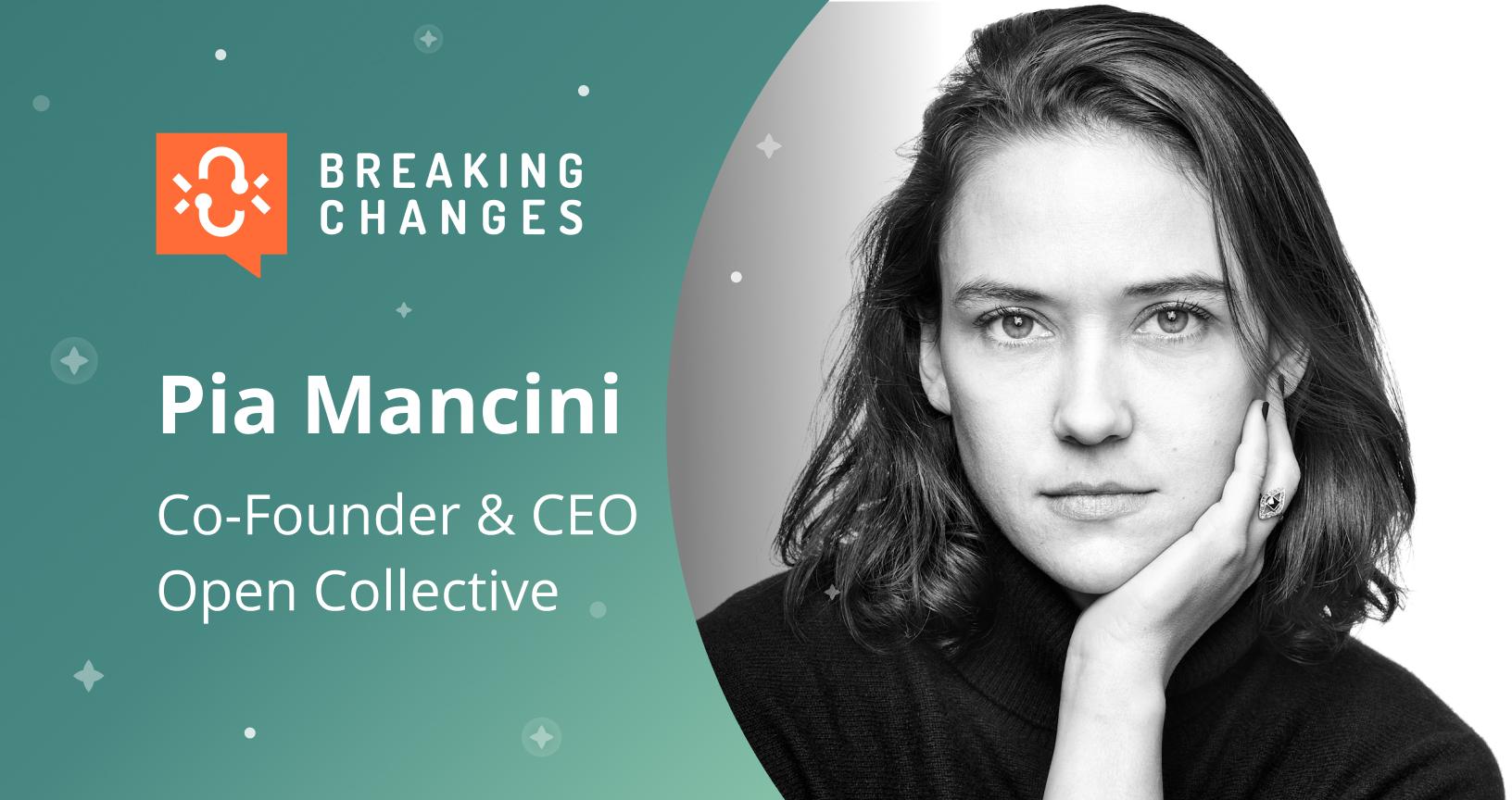“Breaking Changes” with Pia Mancini: defining the next generation of open source with Open Collective
As the director of Postman Open Technologies, I was honored to get to sit down with Pia Mancini, co-founder and CEO of Open Collective, on a recent episode of Breaking Changes. I strongly believe that open source is the foundation and future of the API economy, and my conversation with Pia confirmed this once again for me.
The Open Collective provides funding for open source projects as well as scaffolding for the future of open source. They focus on strengthening the fabric of the API economy by supporting the technology, business, and people sides of things. Pia gave me a compelling view of what open source has grown into, demonstrating how far we’ve come in the short history of this transformational approach to delivering software.
Postman depends upon, but also actively supports, a number of projects that benefit from the Open Collective. The organization plays a significant role in the health and viability of the API sector by championing specifications like AsyncAPI and JSON Schema, as well as other critical tooling we all depend on as part of our API operations.
Connecting the global open source community
The Open Collective platform helps open source maintainers fundraise and spend money in different countries. At the same time, the Open Collective also provides open source maintainers with the business and governance infrastructure they need to be successful and helps ensure that their projects are sustainable. The Open Collective is a business, legal, and, most importantly, human network that connects the global open source community into a distributed and diverse representation of what software can be.
The financial foundation for open source projects is where the Open Collective begins, but it’s really the globally distributed network of entities, open source maintainers, and contributors that provide such a powerful mechanism for moving open source API infrastructure forward. Pia opened my eyes to the human dimension of not only open source, but also the fabric of open source maintainers and contributors they are stitching together.
The Open Collective isn’t just about the legal entities they set up within each country—it’s also about the local and regional people who are brought together as part of this work. This “open collective” of human beings helps deliver and maintain the increasingly modular open source specifications, standards, and tooling we all depend on to make our API operations as reliable, scalable, and interoperable as possible.
Expanding beyond the technical
The human collective that is emerging as part of Open Collective’s work expands open source beyond the technical and places an emphasis on social justice, which is ever-present when we talk about technology. The Open Collective is weighing in on most of the top challenges the world faces right now—everything from COVID-19 to the war in Ukraine—applying open source networks, funding, and practices to the issues that matter most to people in almost every part of the world.
The Open Collective is demonstrating that open source is much more than just technology. In this time of mass resignation where we are looking for more purpose and meaning in our lives and the work we do, human networks and influence matter. We can already see the future of open source in this new, globally distributed, but collective version.
I hope you find my conversation with Pia Mancini of the Open Collective as invigorating as I did, and that her view of the open source world is something that pushes you to get more involved. I was surprised by the diversity in the types of projects they support. They provide something for almost everyone, from helping the environment to helping people working on technology in war zones. It made me happy to learn that so many of these projects weren’t just about the building blocks of software technology, but were very focused on the actual needs of the people involved in all of this.
I hope you’ll listen to my conversation with Pia on your favorite podcast platform, and head over to the Open Collective to roll up your sleeves and get involved with one of the projects they are providing a foundation for.
You can tune in and subscribe to the Breaking Changes podcast on Spotify, Apple Podcasts, Google Podcasts, and Amazon Music, or watch it on YouTube for more details.

What do you think about this topic? Tell us in a comment below.